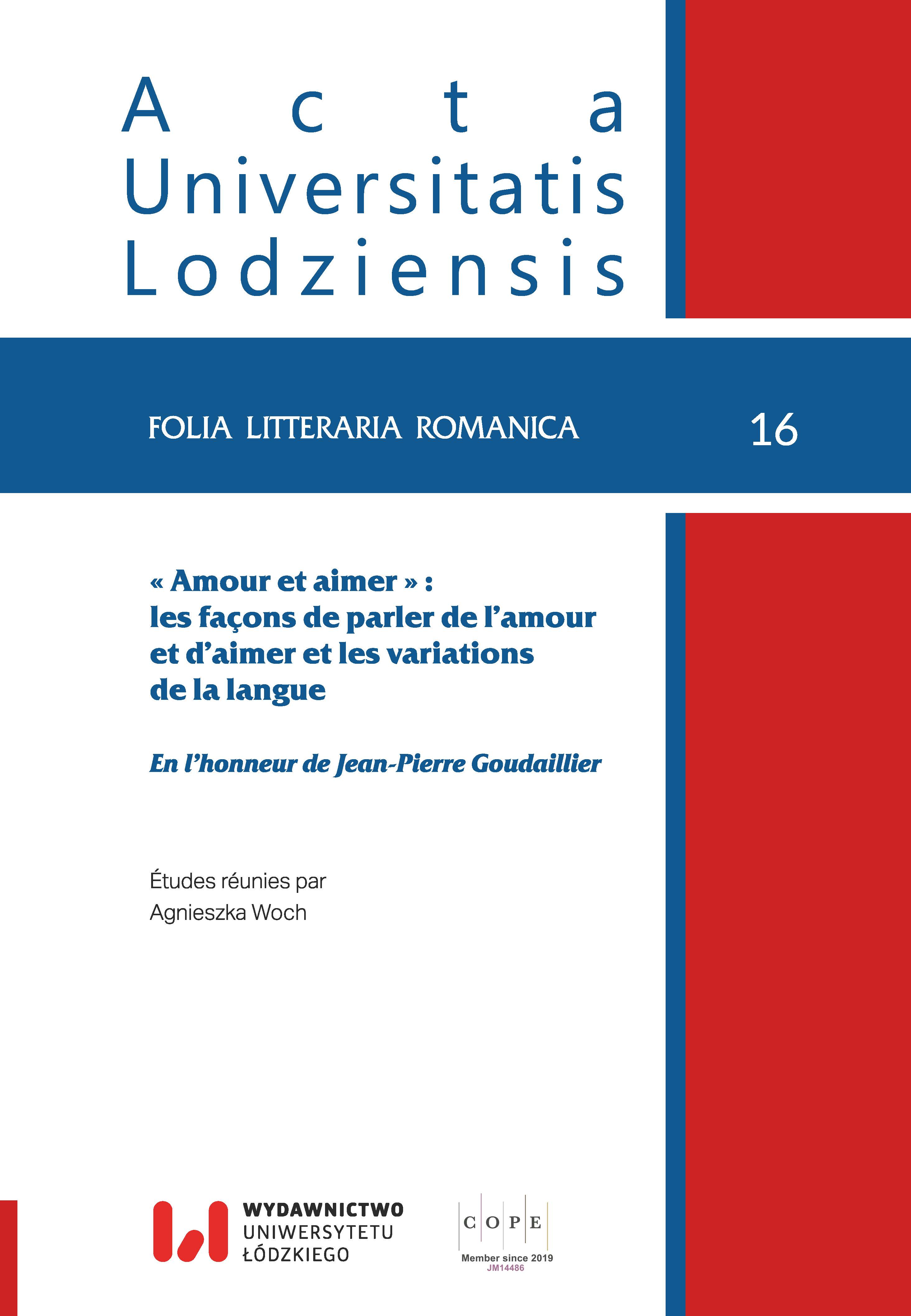Love and Its Expressions in Certain Slangs of the World
DOI:
https://doi.org/10.18778/1505-9065.16.08Keywords:
slang love expressions, taboo words expressing sexuality in slangs, cultural taboos related to sexualityAbstract
One of the most frequent themes in the world, love, is the subject of many controversies. The aim of this paper is to show a little how the language of love is articulated in certain slangs of the world. Slang is frequently identified as a little crude in its expressions of love which concern mainly sexuality. However, sexuality is differently perceived in different cultures. What is considered to be very vulgar in one language is felt as less vulgar in another language and culture. Based on the assumption that we live in mostly patriarchal societies, some notions of taboos related to sexuality remain the same especially in the cultures where patriarchy is very pronounced. However, our attitude to these expressions – which reveal one intimate and frequently unconscious part of us – remains not only collective (perceiving something as vulgar for example) but also profoundly individual.
Downloads
References
COLIN, Jean-Paul, MÉVEL, Jean-Pierre, LECLÈRE, Christian (1994), Dictionnaire de l’argot, Paris, Larousse
Google Scholar
FRANÇOIS-GEIGER, Denise (1989), L’argoterie, Paris, Sorbonneargot
Google Scholar
GOUDAILLIER, Jean-Pierre (2001), Comment tu tchatches! Dictionnaire du français contemporain des cités, Paris, Maisonneuve & Larose
Google Scholar
GUIRAUD, Pierre (1973), L’argot, Paris, PUF
Google Scholar
GUIRAUD, Pierre (1975), Les Gros Mots, Paris, PUF
Google Scholar
GUIRAUD, Pierre (1978a), Dictionnaire érotique, Paris, Éditions Payot & Rivages
Google Scholar
GUIRAUD, Pierre (1978b), Sémiologie de la sexualité, Paris, Payot
Google Scholar
HALPERN, Jack (éd.) (1999), The Kodansha Kanji Learner’s Dictionary, Tokyo, Kenkyusha Limited
Google Scholar
HUSTON, Nancy (1980), Dire et interdire, Paris, Petite bibliothèque Payot
Google Scholar
JAKOBSON, Roman (1963), Essais de linguistique générale, Paris, Éditions de Minuit
Google Scholar
SARAČEVIĆ, Narcis (2003), Rječnik sarajevskog žargona, Zenica, Vrijeme
Google Scholar
SOKOLIJA, Alma (2014a), L’argot parisien et l’argot sarajevien avec les dictionnaires, Sarajevo, Faculté de Philosophie de l’Université de Sarajevo. http://www.ff-eizdavastvo.ba/Books/l%E2%80%99Argot_parisien_et_l%E2%80%99argot_sarajevien_avec_les_dictionnaires.pdf consulté le 20 octobre 2019
Google Scholar
SOKOLIJA, Alma (2014b), « Taboo expressions and stigmatization and their manifestations in language and slang », Travaux XVII, Sarajevo, Faculté de Philosophie de l’Université de Sarajevo, p. 319-328. http://ff-eizdavastvo.ba/Books/SerialPubl/Radovi_FFUNSA_2014.pdf consulté le 20 octobre 2019
Google Scholar
THOMSON, F. Donald (1935), « The Joking Relationships and organized Obscenity in North Queensland », American Anthropologist, n° 37, p. 460-490
Google Scholar
DOI: https://doi.org/10.1525/aa.1935.37.3.02a00100
Oxford Advanced Learner’s English-Chinese Dictionary 9th Edition (2018), London, Hornby
Google Scholar
http://www.languagerealm.com/japanese/japaneseslang.php consulté le 20 octobre 2019
Google Scholar
https://arabic.desert-sky.net/coll_insult.html consulté le 20 octobre 2019
Google Scholar
https://blogs.transparent.com/chinese/swear-words-in-chinese/ consulté le 20 octobre 2019
Google Scholar
https://en.wikibooks.org/wiki/Chinese_(Mandarin)/Slang consulté le 20 octobre 2019
Google Scholar
https://fr.wiktionary.org/wiki/amour consulté le 20 octobre 2019
Google Scholar
Downloads
Published
How to Cite
Issue
Section
License

This work is licensed under a Creative Commons Attribution-NonCommercial-NoDerivatives 4.0 International License.













